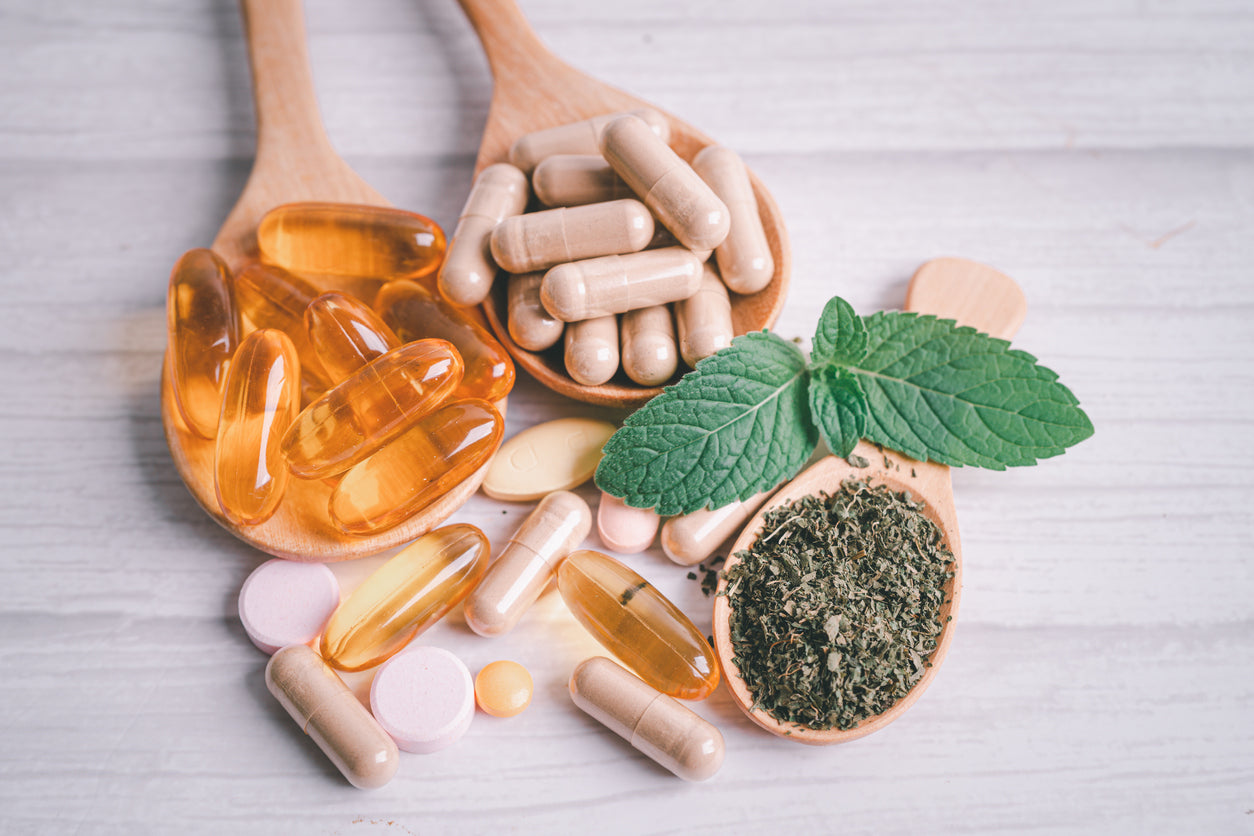Get supplement savvy this change of season

Get supplement savvy this change of season
Those days of relaxing in the garden under the sunshine may have come to the end for this year. But there’s plenty of hot cocoa, fluffy blankets and winter soups to look forward to.
While we prepare for those shorter days and colder months ahead of us, it’s a good time to get supplement savvy as the weather changes. Combine these tips with exercise such as gentle cardio and resistance training and you can avoid needing to take medical advice as much over the colder months!
Read on to find out which supplements you’ll want to pay particular attention to as a result of the upcoming seasonal changes.
Vitamin D
Vitamin D, also widely known as the sunshine vitamin, is a key player in keeping your body healthy – particularly over the winter months.
When it comes to winter health, vitamin D helps by fighting against inflammation, maintaining joint and muscle strength, and may even help regulate mood. It thereby helps to decrease the development of Seasonal Affective Disorder (SAD).
Vitamin D is also an important part of the immune system, and getting enough vitamin D is essential for a strong and healthy immune system – essential for winter health. If you find yourself getting ill or catching infections more often, it may be down to low levels of vitamin D.
One of the ways our bodies produce vitamin D is through exposure to sunshine. But as the weather changes, the ultraviolet light from the sun is no longer strong enough during the shorter, darker days to produce sufficient vitamin D.
That’s why it’s really important to take a vitamin D supplement from October onwards to prevent a vitamin D deficiency.


 Elderberry
Elderberry
Elderberries, otherwise known as Sambucus berries, are ultra-small dark purple berries that belong to the black elder tree. They are well known for their immune nourishing antioxidant content (primarily made up of flavonoids), which can help keep our winter health in check.
Not only do the antioxidants help keep the immune system strong, but the berries are also thought to have antibacterial and antiviral properties. This supports the immune system and may even help shorten the duration of colds and flu.


Vitamin C
Vitamin C is one of the major vitamins you will need this autumn and winter. Now, you may already max out on vitamin C over the cold months, especially when you want to boost your immune system. However, did you know that vitamin C is responsible for more than only fighting off infections?
This health-hero of a vitamin has incredible antioxidant properties that can help tackle common winter skin problems, such as dry and dull skin. Vitamin C delivers multiple skin benefits by helping your body repair damaged skin cells, aid healthy skin regeneration, and plumps out fine lines by stimulating the production of collagen in the body.



Garlic
Garlic is another one to add to the winter-wellness supplement list! That’s because garlic is rich in sulfur compounds known as organosulfur, and these compounds are considered to have powerful antioxidant, antiviral and antibacterial properties. Garlic has also been found to help stimulate the immune system by increasing the number of white blood cells, thanks to the presence of immune-boosting nutrients selenium, vitamin C and flavonoids.


Check Out Our Expert Recommended Blog Posts Below For More Top Tips & Advice
Turmeric
The cold months not only inevitably welcomes colds and the flu, but the low temperature can often aggravate our joints. This can particularly happen in the hips, knees and ankles, causing them to feel increasingly stiff, rigid and more irritable.
Although there’s little that we can do to control the weather, a little bit of turmeric goes a long way over these chilly months.
A lot of turmeric’s long term health benefits are derived from the active antioxidant called curcumin. This exhibits powerful anti-inflammatory properties that may help tackle inflammation and stiffness in the body – that's great news for your joints!
To reap the benefits of turmeric, you can easily add turmeric to your meals, or you could even mix it straight into milk. It’s worth noting that turmeric isn’t easily absorbed in the gut. In fact, over 90% of it is excreted out of the body.
To help boost the absorption of curcumin, we recommend pairing turmeric with black pepper. Some studies have found that black pepper can increase the absorption of curcumin by more than 2,000%


A Soothing Turmeric Milk Recipe
As the days get shorter and the nights colder this winter, we could all do with a little extra soul soothing. If you are looking to snuggle up with something satisfying on a frosty evening or just unwind after a hard week at work, we’ve got just the thing for you!

Let us introduce you to… Hot Turmeric Milk!
Beautifully spicy, this golden milk isn’t just delicious –it’s also a brilliant, healthy alternative to hot chocolate and well worth a shot for turmeric lovers everywhere.
Simply grab these ingredients and make yourself a hot drink you’ll love as well as reducing inflammation.
The ingredients
Here’s what you’ll need:
- 1 Organic Turmeric with Ground Black Pepper & Ginger Capsule
- 250ml soya milk
- ½ tsp ground cinnamon
- 1tsp coconut sugar
- ½ tsp saffron
How to make your turmeric milk
- Your delicious turmeric milk will be ready to go in just 4 simple steps:
- Heat your soya milk in a small saucepan over a low heat until it begins to steam.
- Open 1 turmeric capsule and empty contents over the milk and stir in
- Add the ground cinnamon, coconut sugar and saffron
- Pour into your favourite mug and enjoy!

Riya Lakhani ANutr is a registered nutritionist and health writer with a special interest in plant-based nutrition. She has completed a Bachelor’s and Master’s degree in Human Nutrition, and has developed a passion for writing about all things plant-based.

